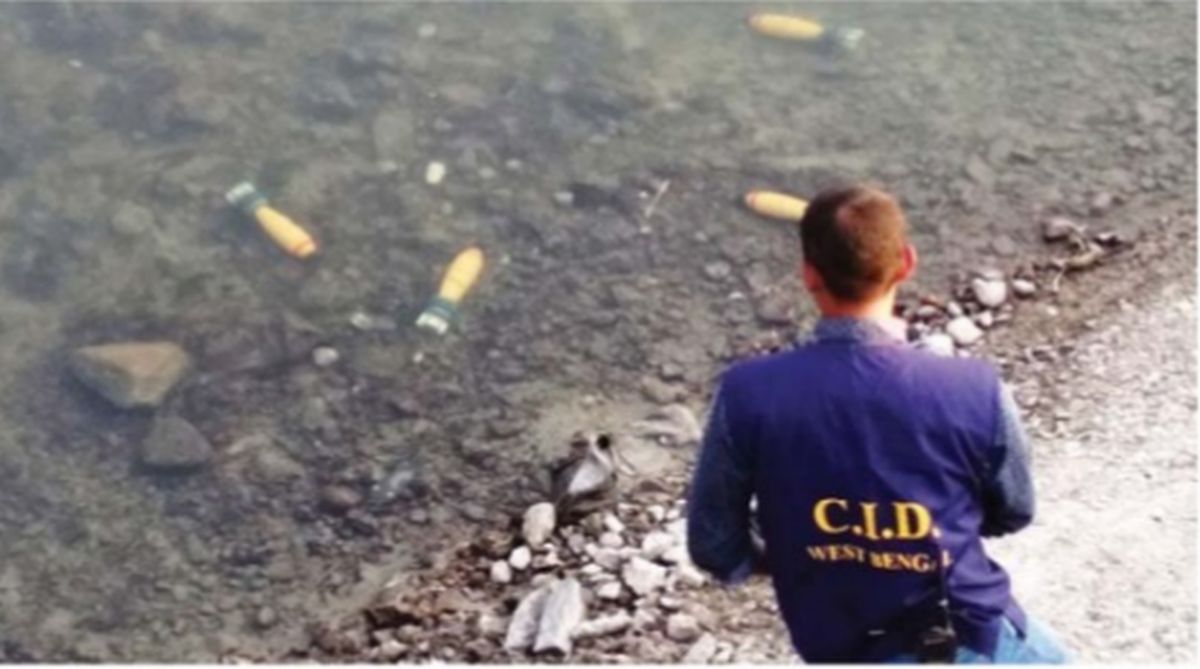Four live mortars that were found on Thursday in the Mahanadi river canal near the Indo-Bangladesh border near Siliguri sparked panic. Police officials said that children fishing in the canal at Goaltuli, around 19km from Siliguri, under the Phansidewa police station, raised an alarm after they saw the mortar shells. Civic volunteers on duty in the area later alerted the police.
The recovery of the mortars has sent across an alarm in the security establishment. Officials of the CID, Army, and the bomb detection and disposal squad of the CID, along with intelligence agencies rushed to the spot, where the mortars were visible in the canal. ‘TNT’ (Trinitrotoluene, an explosive material),’81 (mm) HE C’ are inscribed on the mortars.
Advertisement
According to experts, TNT is insensitive to shock as well as friction, which allows it to be transported and used without much risk of accidental detonation.
It is also water-resistant, which allows its use in wet environments. Army officials confirmed that the mortars were newly-made and live. “Usually such mortars are used by the Army and paramilitary forces. It appeared that the mortars are live and high-intensity explosives,” said an Army official.
Darjeeling superintendent of police Akhilesh Chaturvedi confirmed that the four mortars were found. “We have started investigations and would be able to comment more only after a thorough probe into the matter,” Mr Chaturvedi said. Tension spread in the area after the find, especially as the place is located close to the Indo-Bangladesh border. “Since risk factors are involved in lifting of the explosives, the Army was called in.
We are trying to ascertain how those mortars came in the canal,” said a police officer. Police said two old mortars were found in the Phansidewa area around two years ago. Sources said such “mystery” of disappearance and reappearance of mortars in the area could be considered as a serious security breach.
Army officials said that such mortars are usually stored in bunkers seven to eight feet below under the earth, while the firing range of the shells is around 5 km.











